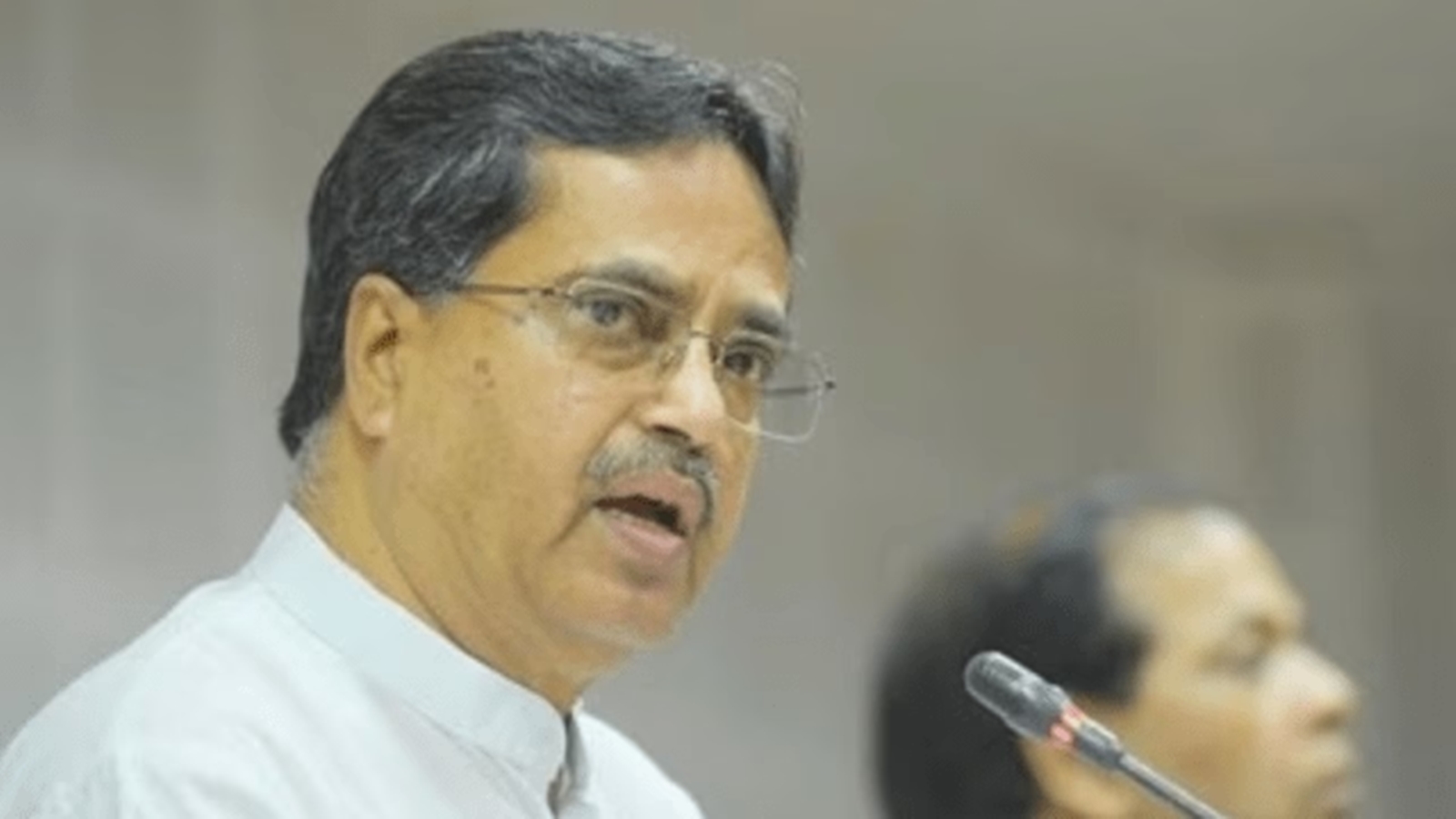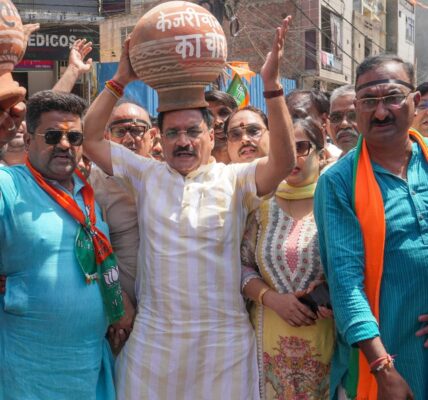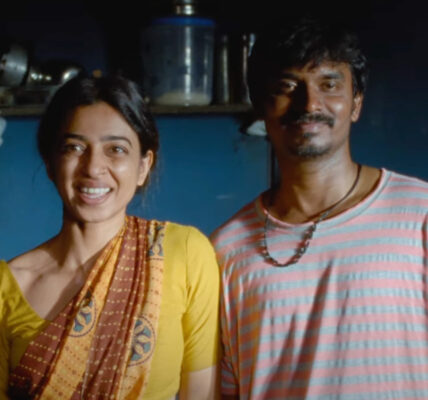Vincenzo de Luca at Idea Exchange: ‘Modi, Meloni share the same vision about relationship between tradition and present challenges’ | Idea Exchange News
Vincenzo de Luca, Ambassador of Italy to India, on their migration policy, the significance of the European Union elections and the role of China in world politics. This conversation was moderated by Shubhajit Roy, Diplomatic Editor, The Indian Express
Shubhajit Roy: How do you read the results of the elections in India and what does it mean for the India-Italy relationship?
My first comment on the election is: congratulations to India and all Indians, to Prime Minister Modi for his historic third mandate and to the Opposition dynamics in India… Every time someone sets an example of democratic life, India is always there, and this time, with the largest elections ever held, even more… This is also good for the continuity of the relations between Italy and India. With our Prime Minister Giorgia Meloni succeeding in the recent EU elections, there will be stability between the two countries that will sustain their relationship.
Shubhajit Roy: When you came to India in December 2019, the relationship between the two countries was not at its best. It was against the backdrop of the Italian Marines Case and the AgustaWestland corruption allegations. What was your brief then?
When I arrived here in New Delhi, there was a lot of important work to do, to finalise the agreement on the Marines and the AgustaWestland issue. My predecessors had worked a lot on this… And finally, in 2023, we had the opportunity to elevate the relation to a strategic partnership: It meant working on sensitive sectors, such as defence, cybersecurity and mobility. Mobility will be one of the main challenges in the coming years… Last year, our government announced a plan to take in 500,000 more legal migrants in Italy… On the one hand, it is strategic for the Italian economy because we need more workers and talent from India. Not only in the agro-industry business but also in the health sector and in manufacturing… On the other hand, I hope that with the further opening of universities exchange programmes and joint and dual degrees, we can have more students from Italy in India… Also, the number of workers and migrants from India to Italy will increase in the coming three to four years.
Ambassador of Italy to India Vincenzo de Luca. (Express photo by Abhinav Saha)
Currently, we host one of the largest Indian communities in the European Union — 210,000 Indians live and work in Italy on a regular basis. They come mainly from Punjab, Haryana and Kerala. Last year, we delivered 21,500 (over 58 per cent compared to 2022) new work permits and stays in Italy.
Shubhajit Roy: How did the needle move towards a more progressive immigration policy with the Meloni government?
The Italian government is focusing on the fight against irregular migration. There is a demographic decline in our economy, for which it is fundamental to have the right number of workers and talent, otherwise we will see a decline in GDP growth, wealth and well-being of the Italian people. So, India will be one of the most interesting pilot projects to increase the number of legal migrants to Italy.
On States and investments: Our companies were happy with Maharashtra, Gujarat, Karnataka and Tamil Nadu. These states have been effective in receiving our investment and helping our companies develop
Shubhajit Roy: Now that Finmeccanica has recast itself as Leonardo, is there a perception that the defence relationship can move forward, despite its past?
Absolutely, I can tell you that something has already happened. Leonardo is very active to promote new partnerships. Companies working in the field of electronic warfare are also very active… There is a joint venture to produce electronic warfare equipment between Bharat Electronics Limited and Elettronica. We have some sectors where we can provide added value. For example, with helicopters, torpedoes, guns and radar, Leonardo can promote partnerships with industrial players here in the framework of “Make In India” programmes… In the coming years, there will also be a potential for growth for Fincantieri and joint shipyards. In the last few months, we had meetings in Delhi of the joint defence group for industrial collaboration and of the military joint committee, and an exchange of experiences between the two administrations. In October, we will also have the aircraft carrier Cavour here in India.
Ambassador of Italy to India Vincenzo de Luca (right) in a discussion with Shubhajit Roy, Diplomatic Editor, The Indian Express (Express photo: Abhinav Saha)
Shubhajit Roy: Last year, we saw Italy leaving the BRI (China’s Belt and Road Initiative). Has that had an impact on Italy’s relation with India?
We are developing a relationship with China as are other European partners. The idea of withdrawing from the BRI was also based on the outcome of this agreement. At the same time, we have relaunched an advanced partnership with China, as Germany and France have done. But another important initiative that will diversify the corridors between East and West — the India-Middle East-Europe Economic Corridor (IMEC) — will give India and Italy further opportunities for collaboration… In line with the IMEC framework is the Blue- Raman digital connectivity cable that will link France, Italy, the Middle East and India. Already financed and largely implemented, it will become operational in the first half of 2025.
On Indian workers in Italy: We host one of the largest Indian communities in the European Union — 210,000 Indians live and work in Italy… Mobility is of importance because we need more workers and talent from India
Ambassador of Italy to India Vincenzo de Luca. (Express photo by Abhinav Saha)
Shubhajit Roy: What is the rapport that the two leaders — Meloni and Modi — share?
I think they are very direct leaders. They express their thoughts without too much formality. They share the same vision about the relationship between tradition and present challenges. They give importance to cultural diversity, identity and also to the relationship between Europe and India in the global scene.
Divya A: How do you view the European Parliament elections and the results where right-wing parties are making significant advances?
Yes, there has been an important result for the right-wing parties, but in any case, you have also to consider that Italy will play an important role in the new governance. We have to see how the leaders decide on the new leadership of the European Union, the President of the Council, the President of the Commission and the President of the Parliament.
Shubhajit Roy: How is Italy different from Hungary, where the right-wing is in power?
The Italian government has adopted a position in favour of more European agreements that are effective and sustainable, for instance, on migration and on economic governance, with the reform of the Stability Pact and Growth Pact. Coherently with what its predecessors did, our government is trying to alleviate the measures that could have a strong impact on highly indebted economies… But, specific topics aside, the line is to continue to work for a more effective Europe, and for a Europe that delivers better… On Ukraine, the line of the Italian government has always been quite clear, aligned with the European Union and NATO. We will see what the decision will be in the coming weeks and months. But there will be no major change in the Italian position, which has been further strengthened by the vote in this election to the European Parliament.
On Modi and Meloni: Both, Prime Minister Modi and Prime Minister Meloni, are very direct. They express their thoughts without much formality… and give importance to cultural diversity and identity
Monojit Majumdar: There is a perception that there is a degree of dissonance between Euro-sceptic leaders such as Prime Minister Meloni and leaders of Hungary or Slovakia and how they look at Europe and its imperatives. For instance, PM Meloni has been very clear about Ukraine, she’s been completely aligned. Is there any friction of sorts?
Prime Minister Meloni is pursuing a policy in favour of a more effective Europe, more coherence between Europe and NATO. She has developed a positive relationship with Ursula von der Leyen, President of the European Commission. The European Union is not just two or three countries, it is 27 countries. You take into account different positions when you strike a balance and you decide what the line of the European Union is. Italy could play an important role in reaching out to other countries and not only to two or three. Also, the support Prime Minister Meloni has received in this election will allow her to have a bigger say in Brussels.
Ambassador of Italy to India Vincenzo de Luca. (Express photo by Abhinav Saha)
Monojit Majumdar: Can you give us a big picture on China and the threats and the opportunities that it poses in the new world order?
I believe the position of Italy is also the position of the European Union: Italy and Europe need to find a balance of interest, dealing with China as a partner on global issues and as an economic competitor in the pursuit of technological leadership, being aware of the two alternative principles and models of governance. The challenge for Europe is to engage China on global issues, because you cannot negotiate anything on climate change or global health without China. Certainly, we have to discuss with China how to rebalance the economic multilateral relations. This does not mean decoupling from China, but creating a sort of level-playing field in terms of market access opportunities.
Shubhajit Roy: Do you think China is playing a constructive role, say, in the war in Ukraine?
For the time being, we would expect more pressure from China on Russia, and we hope that it can play a role in stopping the war and facilitating an agreement.
Ambassador of Italy to India Vincenzo de Luca. (Express photo by Abhinav Saha)
Shubhajit Roy: How do you see the endgame in Ukraine?
We are trying to stop Russia’s aggression and get a fair peace for Ukraine. Don’t forget, it was not a war of Ukraine against Russia, it was an invasion of Russia on Ukrainian territory. So we have to stop this aggression, which is a violation of territorial sovereignty, if we want to ensure peace and stability. The international community, including India, is sensitive to this principle enshrined in the UN Charter. That’s why we are trying to involve more and more countries in the perspective of stopping the war and respecting the fundamental right to territorial integrity and sovereignty of Ukraine… We hope that the Ukraine Peace Summit in Switzerland can further contribute to the process of reaching a new situation in Ukraine and also start a new course, but all this takes time.
Shubhajit Roy: But would you say the sanctions that Europe imposed on Russia did not damage them enough for them to come down to the table?
I don’t think that the sanctions did not damage Russia at all. Certainly, it had serious consequences, for example because you could not export gas in Europe, which was the main market for Russia. For us, it was a challenge. We had to shift the supply of gas from Russia to other sources, and we were able to do it in a very short period of time, especially with our company Eni… We are increasing the capacity of the pipelines from Algeria, Azerbaijan, Libya and LNG from Qatar and other African countries. Thus, we have been able to drastically reduce or eliminate the supply of gas from Russia. Of course, this is not the end of the Russian economy but it has a significant impact, and maybe it will have consequences also in the coming years.
Ambassador of Italy to India Vincenzo de Luca (right) in a discussion with Shubhajit Roy, Diplomatic Editor, The Indian Express (Express photo: Abhinav Saha)
Alind Chauhan: Could you talk about the farmers’ protests that took place across Europe earlier this year. How are you dealing with these protests?
With the new Parliament and new Council in Europe, we will see how to deal with it. Certainly, we will have to make the energy transition more sustainable, in terms of social impact… Once we establish targets, we need to make sure that they do not have an unsustainable social costs. This is an issue in Europe, in India and all over the world… Europe was the first region in the world to set a very ambitious target. But I also have to say that if Europe had not fixed these targets 30 years ago, would there have been such a negotiation on climate change? Would there have been such a participation of all actors? I think that Europe played an important role in mobilising international public opinion. This was its merit. The problem may be that in Europe, the speed and extent of those policies have not been the most effective one in terms of social impact, even if the idea of a “just” transition is already deeply rooted in Brussels and dedicated funds have been deployed in the Union’s budget. This has to be re-addressed by the new European Commission, the new Council and the new European Parliament. I think Europe cannot withdraw from a leading role in promoting action on climate change… But the direction is that we have to better balance the implementation of the targets with the impact on the more vulnerable social classes, in particular farmers, and the more vulnerable countries in the world. That’s the challenge for everybody, not only for Europe.
Monojit Majumdar: By November, we may have Trump back in the White House. How does Italy look at this?
It depends very much on the composition of the new political leadership of Europe. Of course, with the US, with Trump or Biden, the relationship remains fundamental because we are allies, NATO partners… Regardless of who will be president, it will depend on how the new president will manage the present tension and conflicts and what the situation will be at the time of the election.
Ambassador of Italy to India Vincenzo de Luca. (Express photo by Abhinav Saha)
Liz Mathew: How much role did the Church play in resolving the Enrica Lexie issue (in which two Italian marines were charged with the killing of two Indian fishermen off the coast of Kerala in 2012), and how much did that incident affect India-Italy relations?
The Catholic Church was not involved. There was direct contact between the two governments. There were no intermediaries. Yes, the issue affected Italy-India relations a lot in 2012, 2017 and 2018.
Shiny Varghese: The Italian luxury furniture market in India has almost increased by 25 per cent. What are your challenges?
If I were to project bilateral trade between Italy and India in the mass market and consumer goods sector, furniture and interior design would certainly be one of the most promising in terms of growth. In fact, we already are increasing our exports here… Moreover, we will have some designers from Italy who will establish partnerships with Indian companies in the future… Indian design could also be present, to a certain extent, in the Italian market. To give you an example, in some months, there will be an opening of a shop in Milan by an Indian company that produces high-level Italian design… Design and fashion will become another part of the bilateral relation. The biggest potential for Italian fashion and design in Asia is here in India. At Istituto Marangoni, which is the number one school for fashion in the world, 27 per cent of the students come from India. Therefore, Marangoni is exploring opportunities to create a hub in India.
Ambassador of Italy to India Vincenzo de Luca. (Express photo by Abhinav Saha)
Rinku Ghosh: What are some of the memories that you’re taking back, after four years?
I can mention one archaeological site that was really fantastic — Hampi in Karnataka. Italy has 59 UNESCO sites and India has 42, but I think the number will go up because India has enormous potential. Hampi is an example on how to promote and protect (an archaeological site).
Shubhajit Roy: You’ve visited many states and interacted with several state governments. Which states were the most receptive and which were the most challenging?
Our companies were very happy with Maharashtra, Gujarat, Karnataka and Tamil Nadu. These states have been effective in receiving our investments and helping our companies develop. The city with the highest number of Italian companies is Pune, where we have about 50 Italian plants. Perhaps, the most challenging states are the ones where we haven’t been present for a long time.




